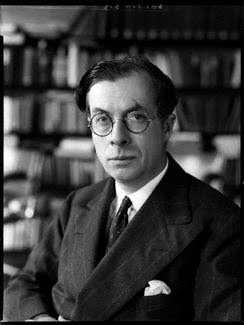Don’t Interfere with Our Sexual Mores
Once the late Julian Huxley, a leader among Darwinists, was asked on the Merv Griffin show, ‘Why do people believe in evolution?”
Huxley honestly answered, “The reason we accepted Darwinism even without proof, is because we didn’t want God to interfere with our sexual mores.”
According to I Don’t Have Enough Faith to Be an Atheist:
By admitting God, Darwinists would be admitting that they are not the highest authority when it comes to truth. Currently, in this technologically advanced world, scientists are viewed by the public as the revered authority figures-the new priests who make a better life possible and who comprise the sole source of objective truth.
Second, by admitting God, Darwinists would be admitting that they don’t have absolute authority when it comes to explaining causes. In other words, if God exists, they couldn’t explain every event as the result of predictable natural laws. Richard Lewontin put it this way: “To appeal to an omnipotent deity is to allow that at any moment the regularities of nature may be ruptured, that miracles may happen.” As Jastrow noted, when that happens, “the scientist has lost control,” certainly to God, and perhaps to the theologian.
Third, by admitting God, Darwinist would risk losing financial security and professional admiration. How so? Because there’s tremendous pressure in the academic community to publish something that supports evolution…finding themselves out of a job, out of grant money, or at least our of favor with your materialist colleagues.
Finally, and perhaps most significantly by admitting God, Darwinists would be admitting that they don’t have the authority to define right and wrong for themselves. By ruling out the supernatural, Darwinists can avoid the possibility that anything is morally prohibited. For if there is no God, everything is lawful.
















My dear Barb, you and who ever wrote that book you so often refer to have so misunderstood what Darwinism is all about. I know tons of people who have no problem believing in both. To my knowledge Darwin was not an atheist. There are lots of scientist who believe in a supreme being – what people do not believe is that God created the world in 7 days as we know a DAY now. Actually Darwinism and all other known science – to my knowledge – supports the order of events as stated in the Bible. Only the timeframe is off. If you just allow for the possibility that a day in Gods life is not equivalent to a day on earth, there is no problem. If you just allow for the possibility that a supreme being can fiddle with things so that “natural events” makes the next change happen to produce what he planned, there is no science that defiances the excistence of a God.
Even the Catholic church acknowledge the Big Bang theory – actually it was a Catholic priest, Georges Lemaitre, that developed the Big Bang theory. Steven Hawkings, a highly estimated scientist tells in his book “A brief history of time” about how he discussed it with the pope.
Excellent points! Those are solid reasons why people choose to disbelieve.
Dear Rene
The meaning of Darwinism has changed over time, and varies depending on who is using the term, and for that matter so has the term evolutionist. Now the writer of the book didn’t make the people up who believe there is no Creator or Intelligent Designer, they exist and he has debated them, and he once WAS one. So, he names them, gives their credentials and belief systems.
But in the basic definistions you have to believe:
1. Something arose out of nothing.
2. Order arose out of chaos.
3. Life arose from non-life.
4. New Life forms arose from existing life forms despite evidence to the contrary, such as:
(1). Genetic limits
(2). Cyclical change
(3). Irreducible complexity
(4). Molecular isolation
(5). Non viability of transitional foms
(6). The fossil record
So the evidence is not good for macroevolution, and as far as I am concerned not for Theistic macroevolution either.
There is no evidence of macroevolution with or without God. It’s not like you have contradictory evidence: some evidence that points to macroevolution, and other evidence that disproves it. If you had, say, a fossil record with millions of transitional forms on one hand, but irreducibly complex creatures on another, then you could perhaps suggest that God guided evolution through those unbridgeable gaps . But that is not the case.
What would the evidence have to look like for Intelligent Design (Creation) to be true? How about:
1. A universe that exploded into being out of nothing.
2. A universe with over 100 fine-tuned, life enabling constants for this tiny remote planet called Earth
3. Life that:
ha s been observed to arise from existing life (it has never been observed to arise spontaneously)
consists of thousands and even millions of volumes of empirically detectable specified complexity
changes cyclically and only within a limited range
is molecularly isolated between basic types
leaves a fossil record of fully formed creatures that appear suddenly do not change, and then disappear suddenly.
Now why don’t we give our children in public schools ALL the scientific evidence? (chapters 3-6 in the book all are scientifically based with no mention of God)
Shouldn’t we be teaching them to think critically on their own?
Darwinist go to GREAT lengths to make sure that doesn’t happen.
I think Darwinists lack FAITH, FAITH in their own theory. That the children will believe it when they see ALL the evidence.